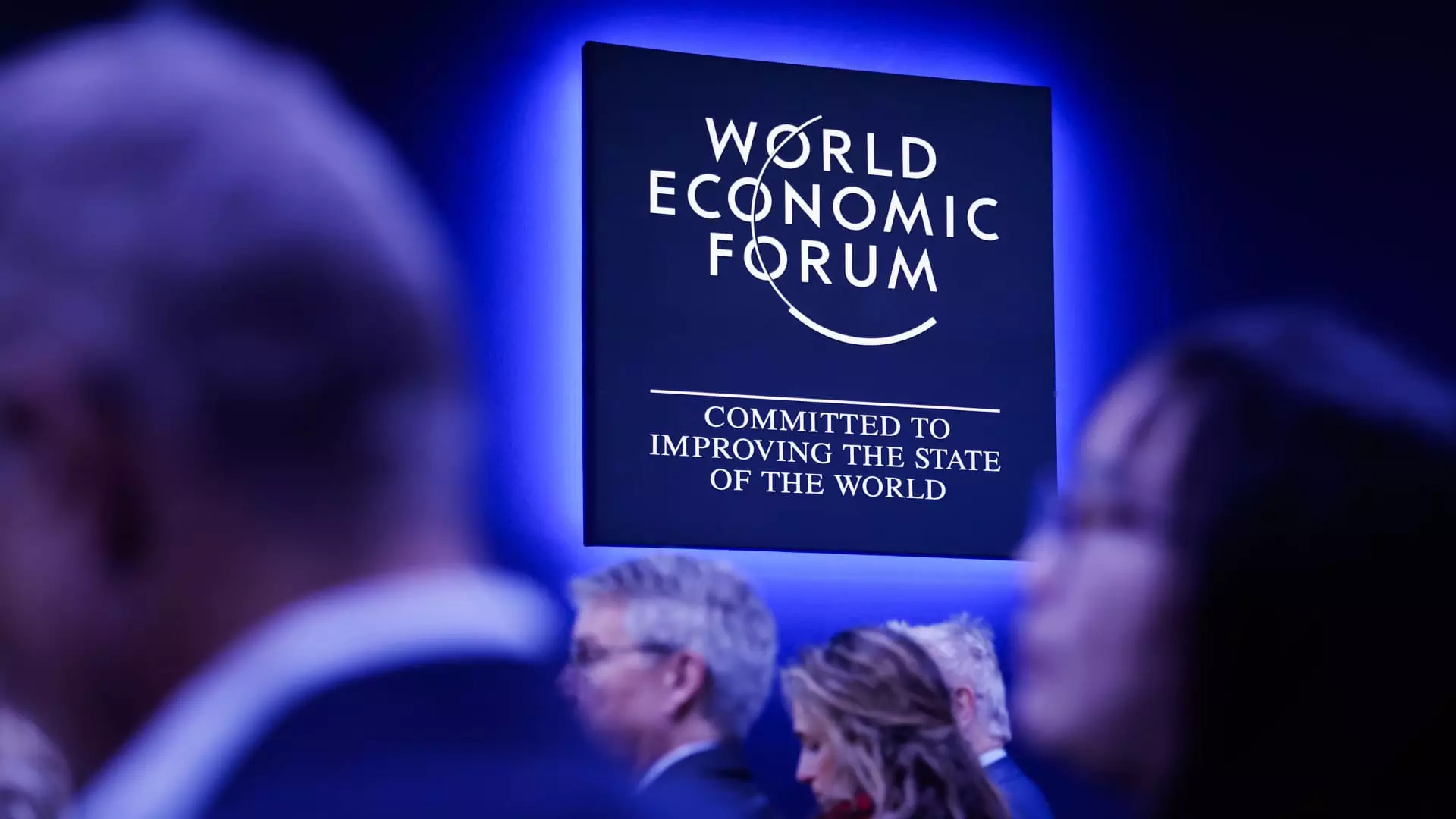At this year’s World Economic Forum (WEF) in Davos, Switzerland, a pivotal dialogue is unfolding amongst global leaders and corporate executives. The focus has shifted toward three crucial concepts: diversity, equity, and inclusion, collectively referred to as DEI. While these values have long been discussed, their prominence at this year’s summit mirrors a broader cultural and political debate surrounding them. The arrival of differing perspectives on DEI—from politicians taking hard stances against it to executives reaffirming its significance—has sparked fruitful, albeit contentious, discussions that could shape the future of workplace culture and corporate governance.
The backdrop of this dialogue is underscored by actions taken at the highest levels of government. For instance, former President Donald Trump declared during a virtual presentation at the WEF that his administration aimed to eradicate what he termed “discriminatory diversity, equity, and inclusion nonsense.” This comment reflects a pronounced shift toward a meritocracy, effectively critiquing existing DEI initiatives. On his first day in office, Trump signed an executive order aimed at dismantling federal diversity programs. This was not merely a political move but the outline of a policy direction that many corporate leaders are closely monitoring.
In the weeks following this return to merit-based rhetoric, reactions from corporate leaders have varied widely. The ongoing executive discourse around DEI has elicited both defense and reevaluation of such initiatives in the business world. Despite federal actions to roll back DEI measures, prominent executives announcing their commitment to diversity initiatives are advocating for the continued importance of inclusivity within their companies.
Executives from notable corporations have stressed that their values remain steadfast. They assert that fostering an inclusive environment is not merely a regulatory obligation but a fundamental component of their business strategy. A Nasdaq executive highlighted the intrinsic value that a diverse workplace brings to the company, stating, “We believe that being inclusive allows individuals to operate at their highest potential.” This sentiment resonates across various sectors, emphasizing that diversity not only reflects social justice but also leads to enhanced business outcomes.
The consensus among business leaders is clear: diversity fuels success in today’s competitive landscape. Many executives emphasized the data-driven aspects of diversity, claiming that teams with varied backgrounds yield higher productivity and resilience. As one leader put it, “When we have diverse teams, our teams are more productive. We have lower risk.” This perspective adds a practical dimension to the ideological debate, rooting the argument for diversity in quantifiable results.
However, the narrative surrounding DEI is not static. It is marked by a series of complex reactions to politically charged interventions and public sentiment. Some leaders expressed that certain initiatives under the DEI framework incurred backlash due to their controversial nature. Acknowledging this, they suggested that rethinking strategies surrounding the language and implementation of DEI goals may be prudent moving forward. The dialogue surrounding DEI may well evolve as leaders strive to navigate the political landscape while attempting to maintain — or even enhance — the inclusivity of their organizations.
Navigating the changing tides of DEI remains a delicate balancing act for corporate leaders. On one hand, there is an urgency to respond to the evolving political climate; on the other, the core belief in the value of diversity must persist. The resilience of companies that see diversity as an asset rather than a liability will be tested as we witness shifts in policy and public opinion.
Leaders are recognizing that whether or not the terminologies and frameworks around diversity change, the underlying principles must remain intact. As one executive succinctly noted, “Diversity in general is good for business.” The future will demand that organizations adapt to new definitions of inclusivity while staying committed to fostering environments that allow for varied perspectives.
As the discourse on diversity, equity, and inclusion continues to evolve, reflections from the business community at the World Economic Forum signify a critical juncture for corporate culture. The ongoing challenges relating to DEI highlight not only the differing political and social narratives but also the commitment of corporate leaders to adapt and thrive amid opposition. The ultimate outcome of this debate will likely influence the motivations shaping business ethics and societal expectations for years to come.

